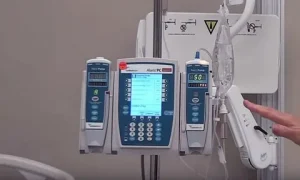Relapse is a common concern for individuals recovering from addiction. While achieving sobriety is a significant milestone, maintaining long-term recovery requires ongoing effort, awareness, and strategic planning. Advanced relapse prevention focuses on developing skills, strategies, and mindset shifts that help individuals navigate high-risk situations, manage stress, and maintain a strong commitment to their recovery journey. At Milestone Recovery, we emphasize proactive approaches to relapse prevention, equipping individuals with the tools they need to sustain their progress.
Understanding Relapse and Its Stages
Relapse does not happen suddenly—it is a process that unfolds over time. Understanding the stages of relapse can help individuals identify warning signs early and take action before a return to substance use occurs. The three main stages of relapse are:
1. Emotional Relapse
At this stage, individuals may not be actively thinking about using substances, but they exhibit behaviors that increase their vulnerability. Warning signs include:
- Bottling up emotions
- Isolating from support systems
- Poor self-care (sleep, nutrition, exercise)
- Increased stress and anxiety
- Avoiding therapy or meetings
2. Mental Relapse
During this phase, individuals start to experience an internal struggle between the desire to stay sober and the temptation to use. Common indicators include:
- Romanticizing past substance use
- Thinking about people, places, and events linked to addiction
- Lying or engaging in secretive behavior
- Planning or fantasizing about relapse
3. Physical Relapse
This is the final stage where an individual actually returns to substance use. However, by recognizing and addressing the earlier stages, individuals can significantly reduce the risk of reaching this point.
Advanced Relapse Prevention Strategies
Effective relapse prevention goes beyond avoiding triggers—it involves building resilience, fostering self-awareness, and developing practical coping strategies. Here are some key techniques for long-term recovery:
1. Strengthening Emotional Regulation
Unmanaged emotions are a leading cause of relapse. Developing emotional intelligence and healthy coping mechanisms can help individuals navigate stress and avoid turning to substances for relief. Strategies include:
- Practicing mindfulness and meditation
- Engaging in regular physical activity
- Expressing emotions through journaling, art, or therapy
- Developing problem-solving skills
2. Identifying and Managing Triggers
Understanding personal triggers is crucial in preventing relapse. Triggers can be emotional, environmental, or social. A proactive approach includes:
- Creating a list of high-risk situations and planning responses
- Avoiding people and environments associated with past substance use
- Replacing negative influences with supportive relationships
- Using grounding techniques to stay present during stressful moments
3. Developing a Strong Support System
Having a network of people who provide encouragement and accountability is essential for maintaining sobriety. This includes:
- Attending support groups such as AA, NA, or SMART Recovery
- Building relationships with sober friends and mentors
- Maintaining open communication with therapists and counselors
- Seeking guidance from trusted family members
4. Practicing Self-Care and Lifestyle Balance
A healthy lifestyle plays a major role in relapse prevention. Prioritizing overall well-being helps individuals stay mentally and physically strong. Key areas to focus on include:
- Eating a balanced diet and staying hydrated
- Maintaining a consistent sleep schedule
- Engaging in hobbies and activities that bring joy
- Setting realistic goals and celebrating progress
5. Developing a Crisis Plan
Even with strong prevention strategies, cravings and unexpected challenges can arise. Having a crisis plan in place provides a structured response when facing temptation. An effective crisis plan includes:
- Identifying emergency contacts (sponsors, therapists, support group members)
- Practicing urge surfing (acknowledging cravings without acting on them)
- Distracting with healthy activities (exercise, reading, calling a friend)
- Removing access to substances and high-risk environments
6. Building Resilience Through Therapy
Long-term recovery requires continuous personal growth. Engaging in therapy—whether individual, group, or family therapy—can provide valuable insights and strategies for managing challenges. Cognitive Behavioral Therapy (CBT) and Dialectical Behavioral Therapy (DBT) are particularly effective in relapse prevention, helping individuals reshape thought patterns and improve emotional regulation.
Overcoming Setbacks: Learning from Lapses
Relapse does not mean failure—it is an opportunity to learn and strengthen one’s recovery plan. If a slip occurs, individuals should:
- Acknowledge the setback without self-judgment
- Seek immediate support from a trusted person or professional
- Identify what led to the lapse and adjust the prevention plan accordingly
- Refocus on recovery goals with renewed commitment
Hope and Healing Through Advanced Relapse Prevention
Long-term recovery is an ongoing process that requires self-awareness, commitment, and the right strategies. By implementing advanced relapse prevention techniques, individuals can navigate challenges confidently and continue building a life free from addiction.
At Milestone Recovery, we believe that relapse prevention is about more than avoiding substances—it’s about creating a fulfilling, healthy, and purposeful life. If you or a loved one is seeking support, know that help is available, and you are not alone on this journey. Let’s take the next step toward lasting recovery together.







